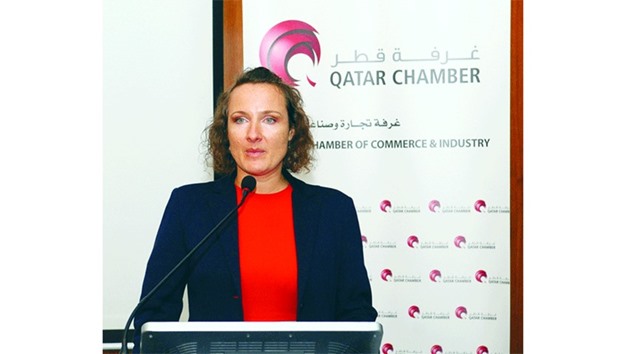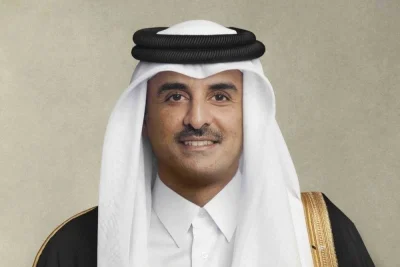Renewable energy and clean technology (clean tech) could be a “good niche” for small and medium-sized enterprises (SMEs) in Qatar, but it has its challenges, a representative of the European Union (EU) said.
Instead of taking large-scale projects such as power plants, SMEs here could provide clean tech solutions that address cost and energy efficiency issues of companies or residential and commercial projects.
However, the road towards clean energy still has its challenges, especially for Qatar’s SME sector, according to Lucie Berger, head of Trade Delegation of EU to the GCC.
“Renewable energy may be challenging, especially in Qatar, but there is actually a good niche for small enterprises to look at clean energy and energy efficiency solutions. Rather than building huge power plants because energy is quite cheap, SMEs could be a source of these solutions.
“To provide solutions for companies or households and help them save money on energy bills is perhaps the way forward for clean energy in Qatar,” Berger told Gulf Times.
Berger further explained that SMEs could provide clean tech solutions in the areas of air conditioning, heating, energy efficiency in industrial processes, or renewable energy for water heating during the winter season, among others.
She added that SMEs could also take advantage of Qatar’s thrust towards building smart cities. “I think this is exactly part of the smart city concept,” Berger stressed, citing Lusail City, which she described as the “future of smart cities” in Qatar.
Aside from smart cities, Berger also described the drop in oil prices as “a blessing for the Gulf” region, and that SMEs can maximise on diversification opportunities, which, she said, can help promote environment-friendly solutions.
Berger also noted the significant role played by the Paris Agreement in promoting energy efficiency in the construction and infrastructure industry. She added that 60% of greenhouse gases from the Gulf is produced by the construction and building sector.
The trend among “green countries” in the EU is to tap into other renewable sources of energy as part of the European Commission’s ‘Renewable Energy Directive’, which requires buildings and houses in Europe to achieve category six or zero CO2 emission level.
“The Renewable Energy Directive establishes an overall policy for the production and promotion of energy from renewable sources in the EU. It requires the EU to fulfil at least 20% of its total energy needs with renewables by 2020... All EU countries must also ensure that at least 10% of their transport fuels come from renewable sources by 2020,” the European Commission said.

u201cTo provide solutions for companies or households and help them save money on energy bills is perhaps the way forward for clean energy in Qatar,u201d says Berger. PICTURE: Nasar TK



